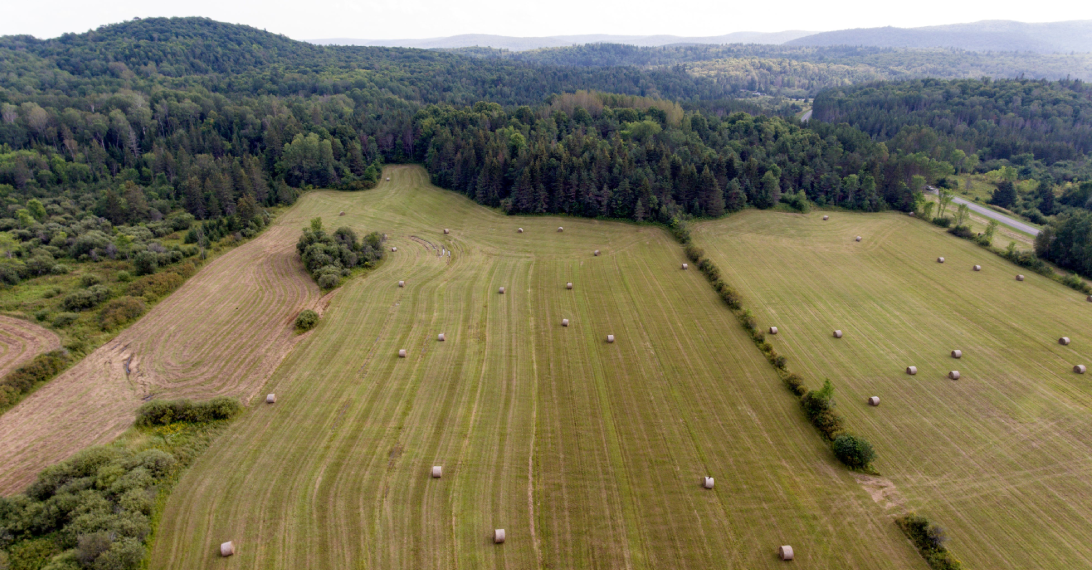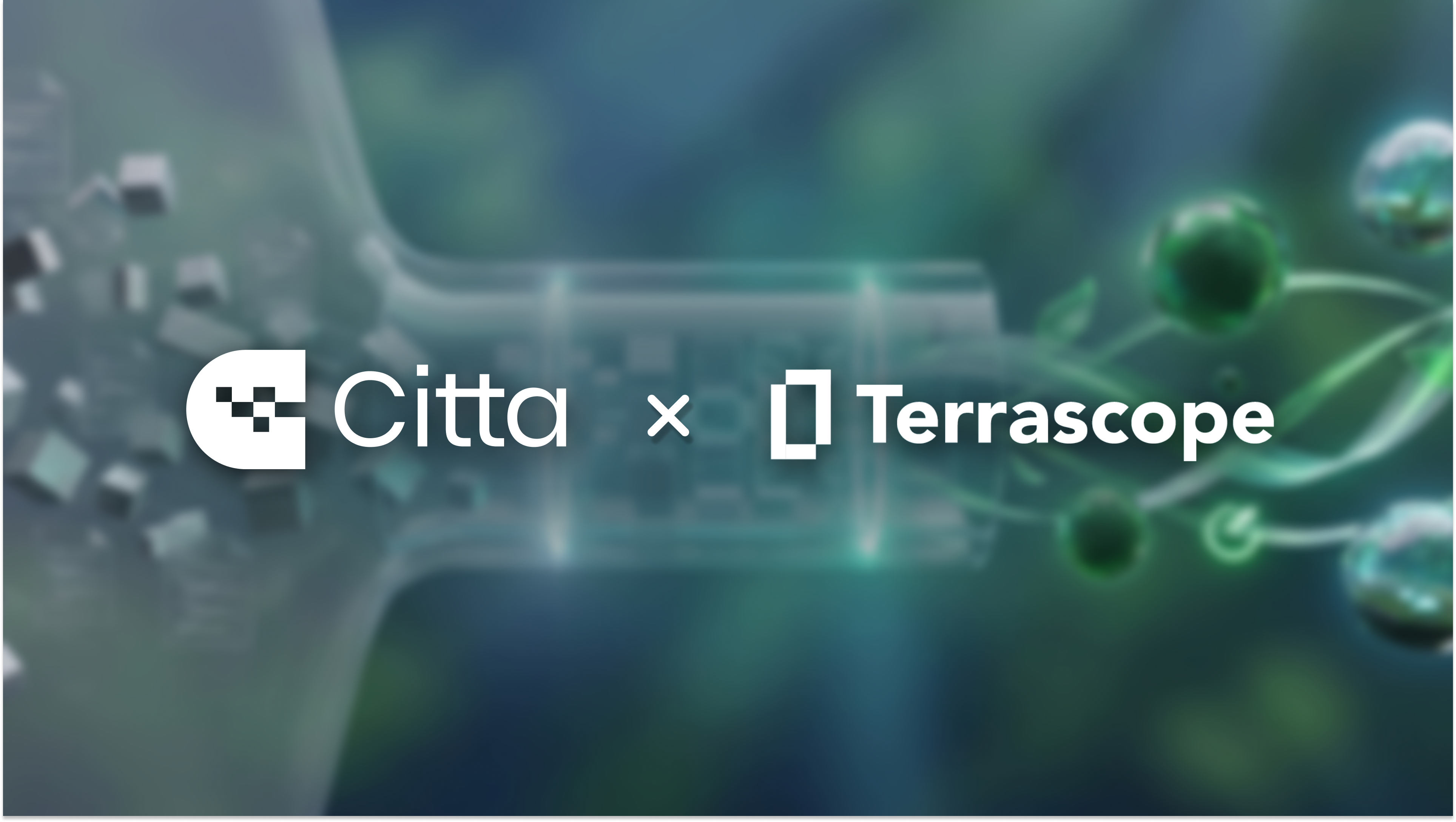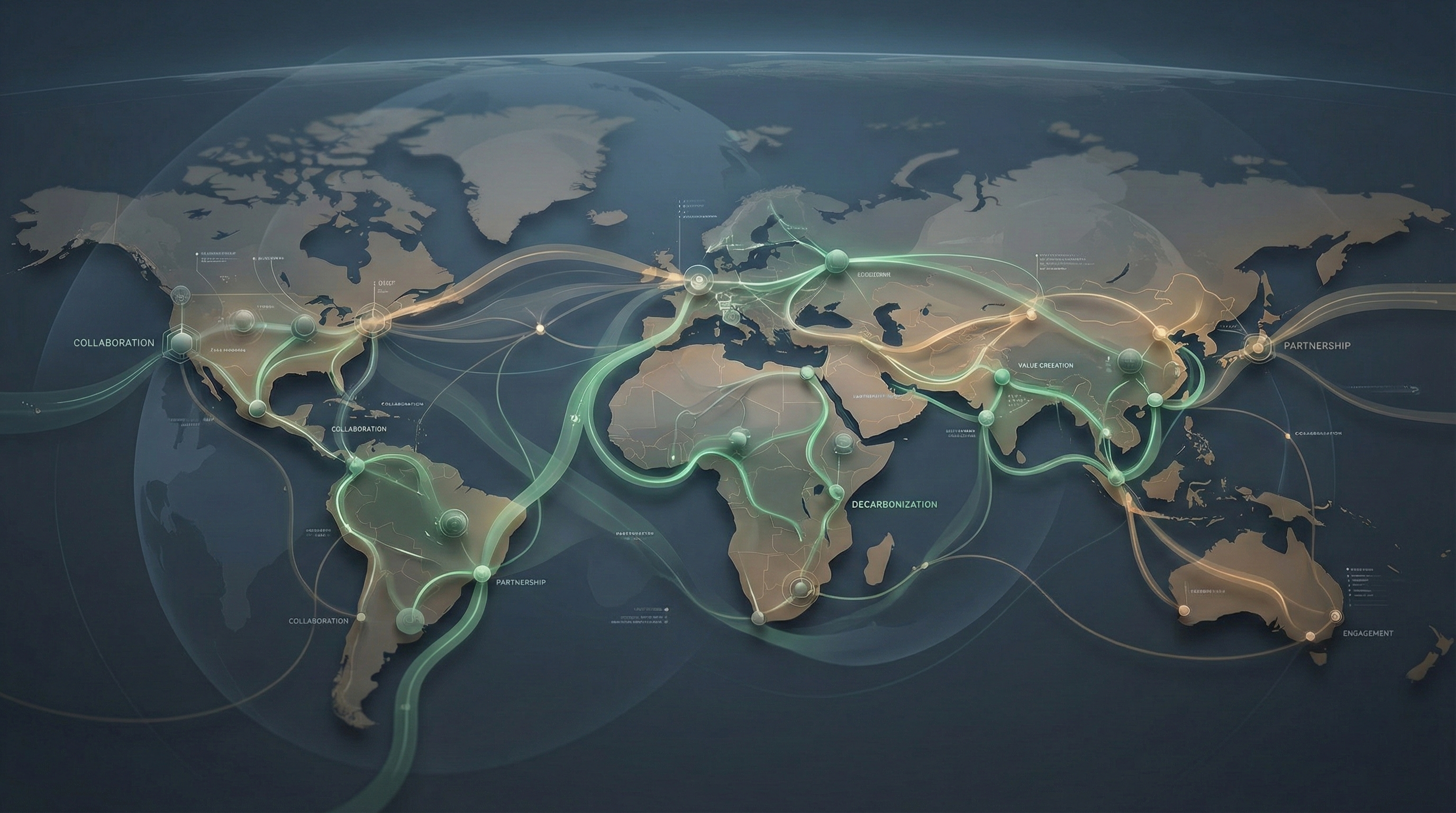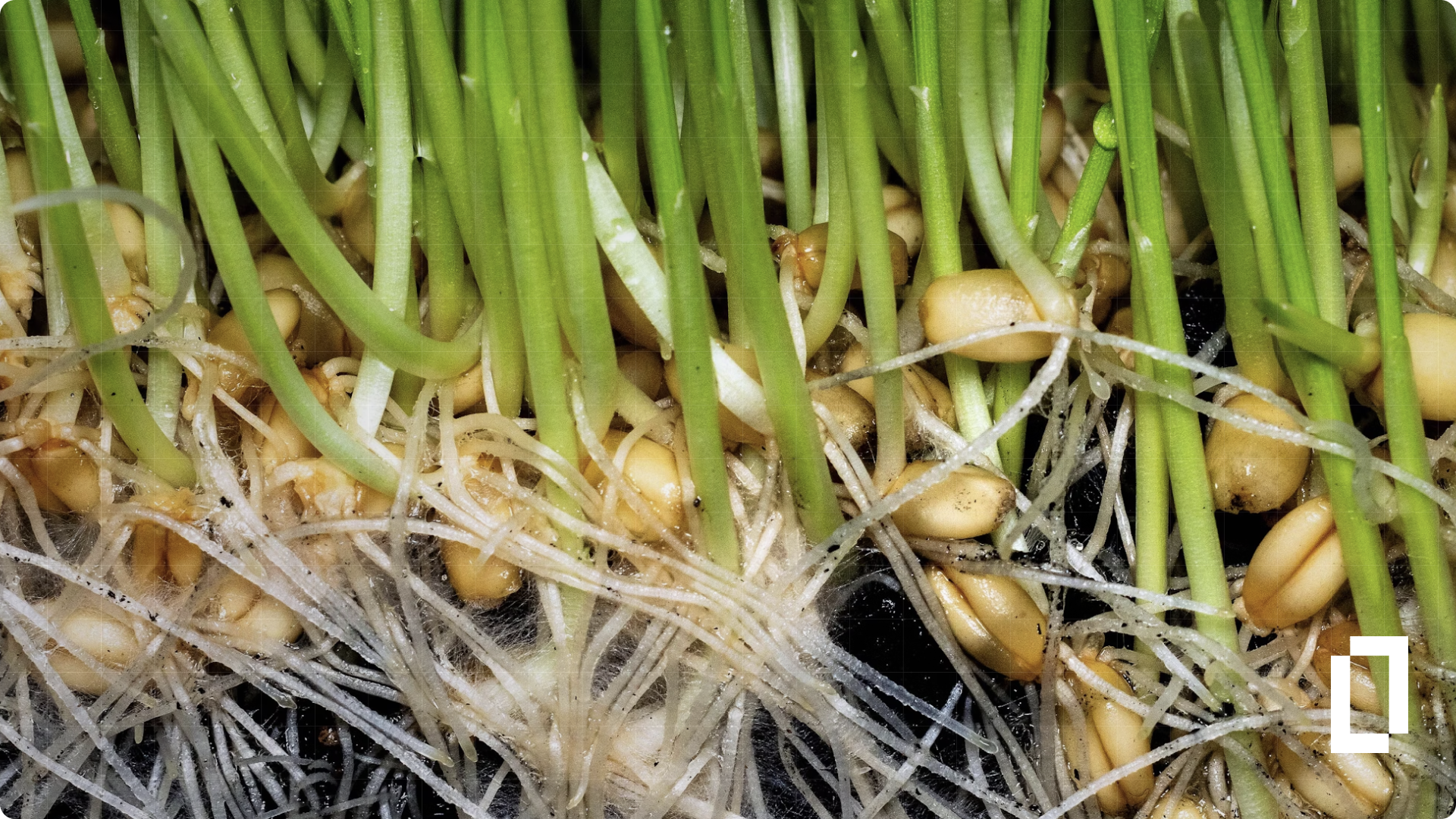Summary
- Singapore leads Southeast Asia in climate regulation, aiming for net zero by 2050 and ambitious targets for solar energy and building efficiency by 2030.
- Mandatory climate disclosure regulations, including ISSB-level reporting for high-risk sectors, promote transparency among businesses and facilitate a transition to a low-carbon economy.
- Terrascope helps businesses visualise and manage their carbon emissions, ensuring regulatory compliance, and supporting sustainability goals through data-driven insights.
Introduction
Terrascope is excited to introduce a significant addition to our platform – the Forest, Land, and Agriculture (FLAG) module. This tool is set to revolutionise carbon measurement and management in land-intensive sectors, paving the way for more decarbonisation in agri-food value chains across the world.
The rising importance of FLAG
With enterprises increasingly required to reduce their emissions, the role of land in emission reduction cannot be understated. Accurately measuring and managing land-based emissions is crucial for achieving sustainability targets. The food and agriculture sectors alone contribute to nearly a third of global emissions, largely from upstream sources, where activities such as Land Use Change (e.g. Deforestation), crop management and livestock significantly contribute to these emissions. The direct dependence on upstream activities to land use emissions underscores the urgency for tools like the FLAG module, enabling enterprises to effectively manage their land-based emissions, aligning with science-based targets and the Paris Agreement's goal of limiting global warming.
Terrascope’s approach to FLAG
Our approach to managing and reducing FLAG emissions includes compliance with SBTi, as well as alignment with the new GHG Protocol Land Sector & Removals Guidance. This module enables enterprises in the FLAG sectors to measure land-based emissions from their own operations as well as their supply chain. Enterprises can also measure their decarbonisation initiatives involving carbon sequestration and better land management using the Terrascope’s FLAG Module.
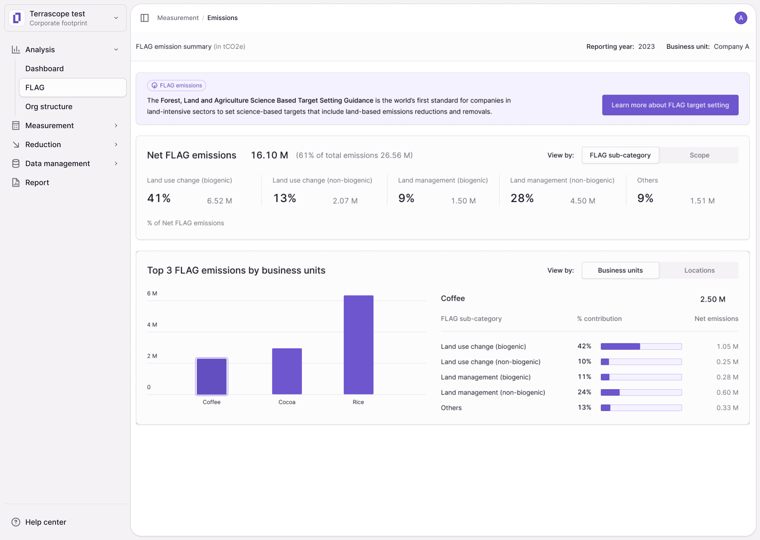
Key features of the FLAG module
- Comprehensive Emission Analysis: In-depth assessment of emissions from land use, including agriculture, forestry, and other land-intensive activities.
- Advanced Measurement Tools: Utilise cutting-edge tools for precise estimation of emissions from various land management practices, including crop cultivation, livestock rearing, and fertilizer use.
- Global Standards: Alignment with the latest SBTi guidelines and GHG Protocol, ensuring global compliance and standardization.
- Strategic Planning Support: Assistance in setting science-based targets and developing long-term sustainability strategies that align with global environmental goals.
For enterprises required to set FLAG SBT targets, the Terrascope FLAG module is an essential asset. It enhances operational efficiency and optimises decarbonisation investments, while simplifying compliance efforts. The module provides a transparent, comprehensive view on a singular platform, and will enable the inclusion of carbon removal strategies in decarbonisation plans.
The FLAG module is just the beginning of our commitment to advancing sustainability in land-intensive industries. Future developments will include enhanced capabilities for modeling land use change impacts, integrating more detailed aspects of farming practices, and expanding the scope of carbon removal strategies. These innovations will provide a more holistic view of environmental impact, further aiding companies in their journey towards sustainability and net zero emissions.
As a leader in the field of decarbonisation, we remain dedicated to providing comprehensive solutions for businesses looking to reduce emissions across their operations. Our platform continues to evolve, incorporating the latest in AI, data science, and environmental expertise, to ensure that our clients are at the forefront of sustainable practices.
With the introduction of the FLAG module, we are reaffirming our commitment to enabling enterprises in land-intensive sectors to meet their sustainability goals, and empowering them to keep the planet habitable for all.
Be the first to know.
Join us on LinkedIn to get curated updates monthly.

Nic MyersHead of Product, Terrascope |

Joanne TongSenior Product Manager, Terrascope |
